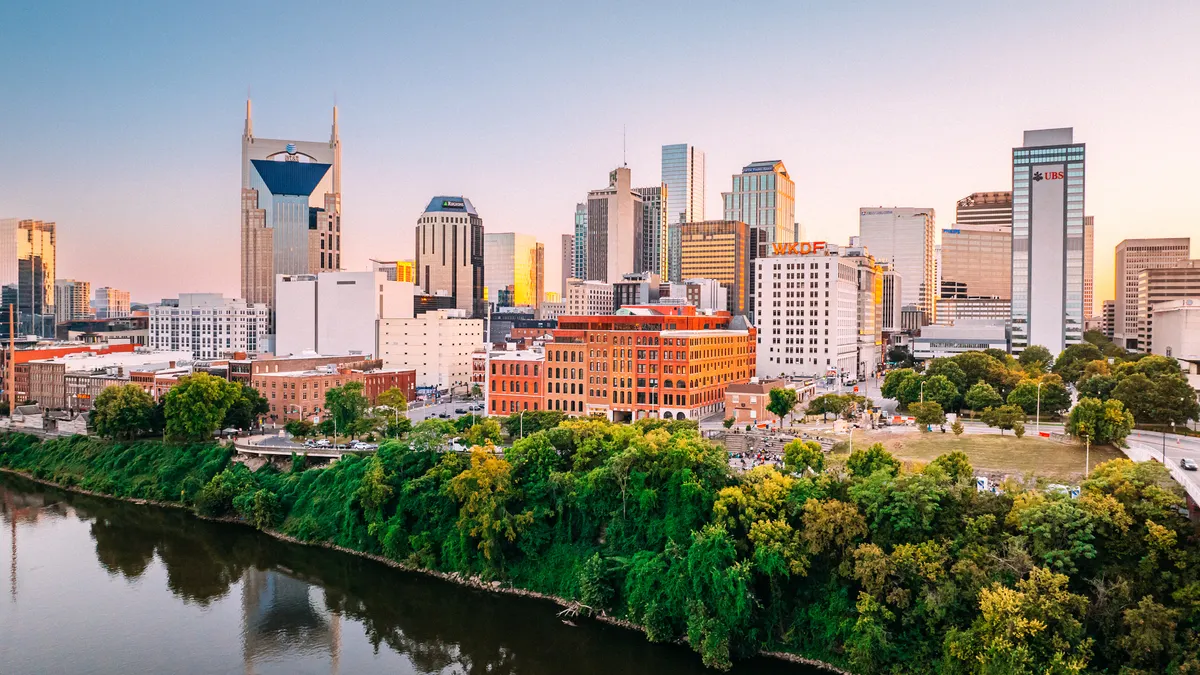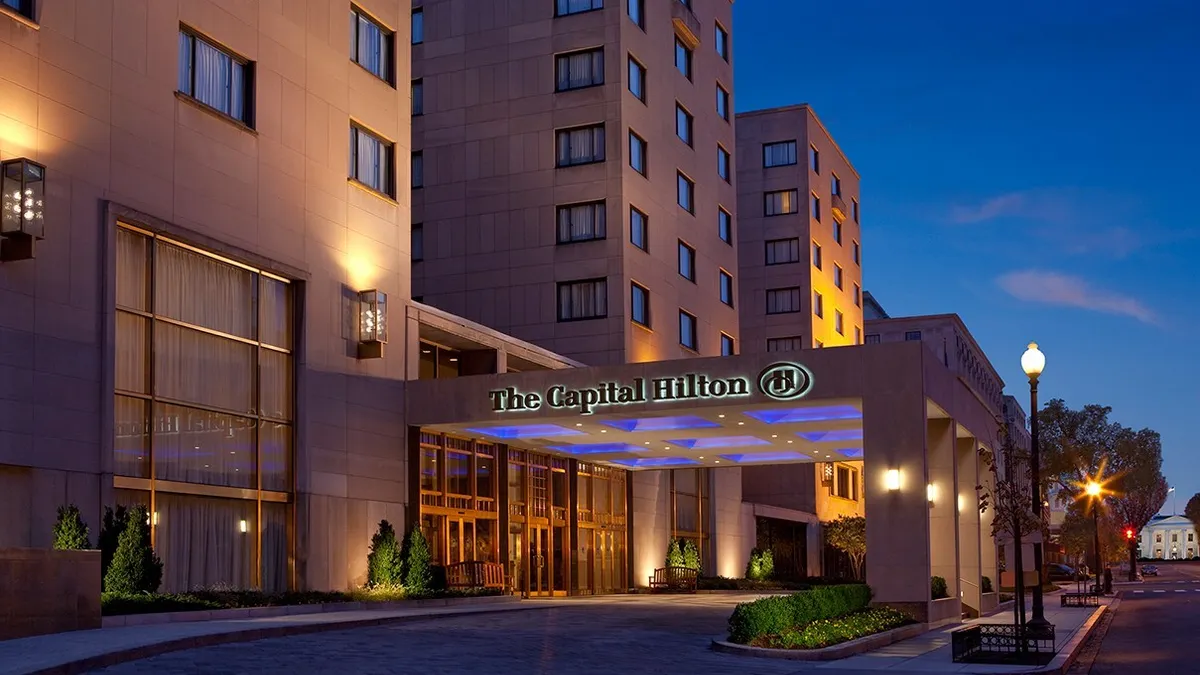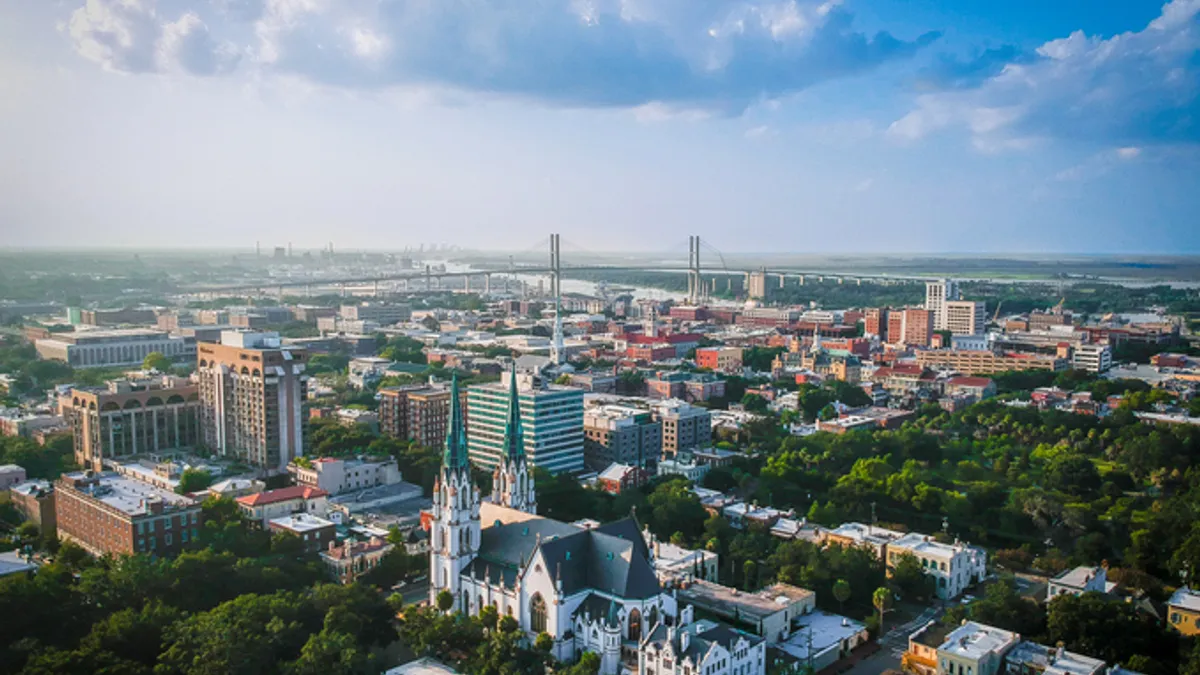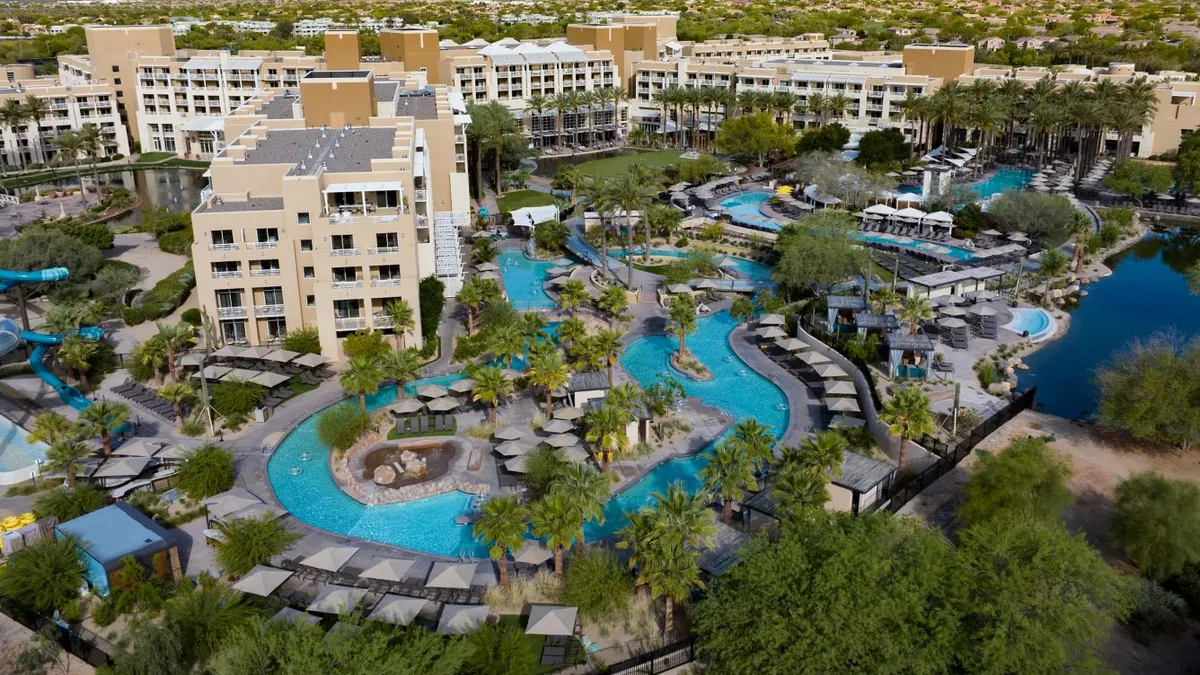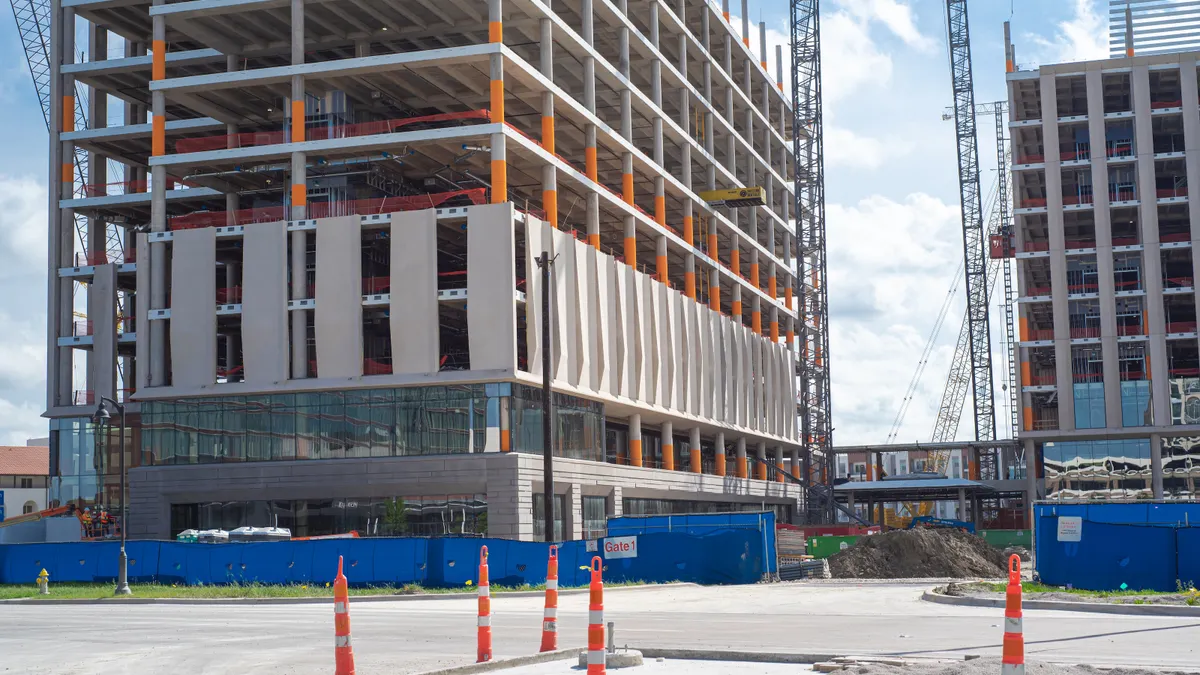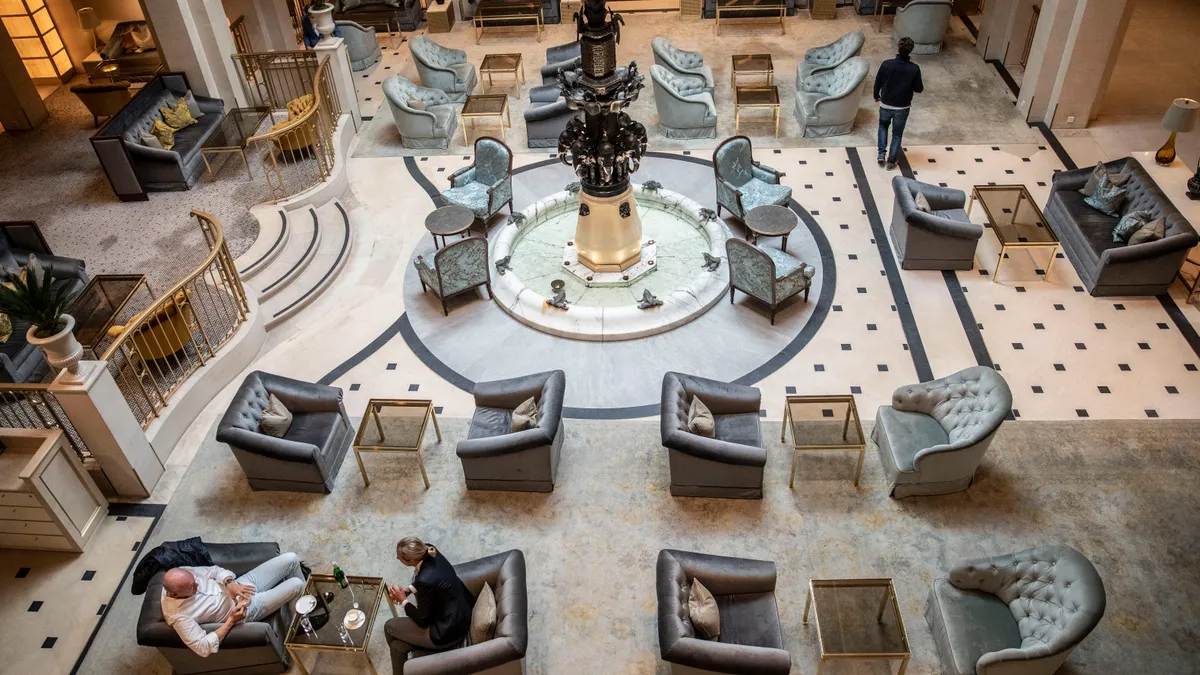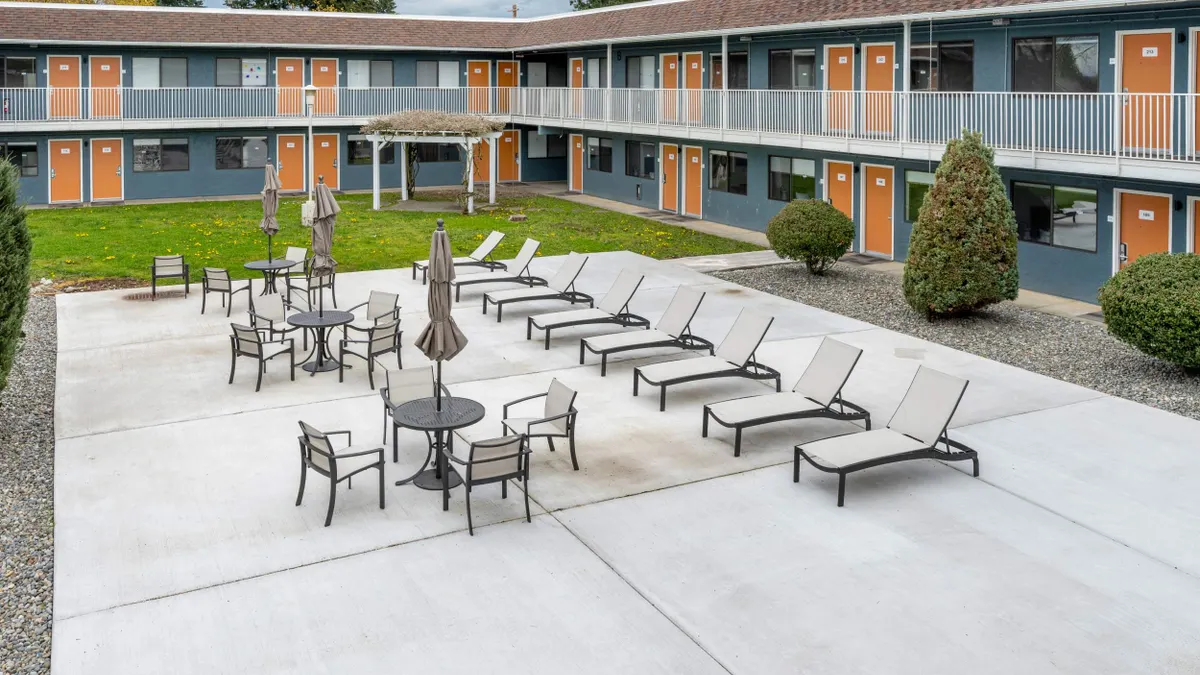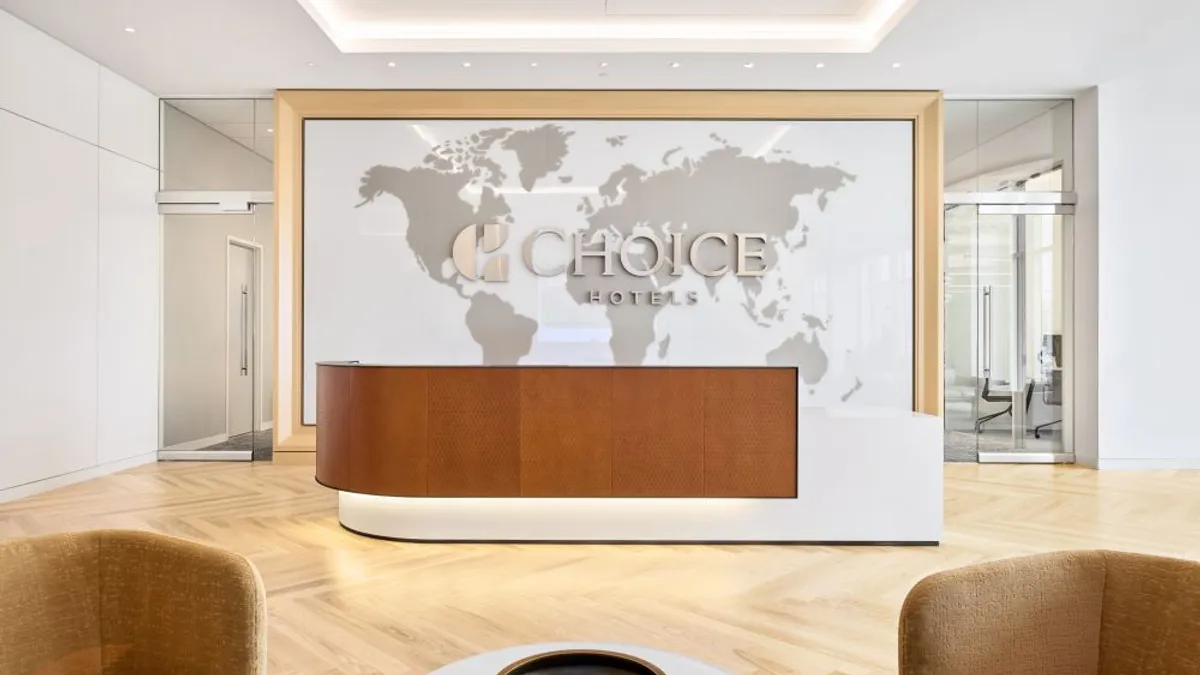It was 1992, and Nashville, Tennessee, had just elected a new mayor, Phil Bredesen. Leesa LeClaire, a hospitality professional, attended a meeting where he spoke.
“He said, ‘I want you all to close your eyes, and I want you to take a tour with me,’” LeClaire told Hotel Dive. The mayor then had everyone in the room imagine a bustling future Nashville, replete with beautiful parks, sports teams with dedicated arenas, large-scale event venues and a bustling restaurant scene.
“We were all like, ‘Yeah, right,’” LeClaire, now the CEO and president of the Greater Nashville Hospitality Association, said with a laugh. But ultimately, Bredesen’s vision came to life. Within years, the city opened the 20,000-seat Bridgestone Arena, the 69,000-seat Nissan Stadium and, in 2013, the 2.1 million-square-foot downtown convention center.
“The culmination of all of those things is really what put us on the map,” LeClaire said.
Today, that development is paying off in tourism numbers, visitor spend and hotel demand. Hotel Dive spoke with hospitality and real estate professionals about how Nashville’s events market is driving a hotel development boom and what’s next for the city’s buzzy hospitality scenes.
Events-driven travel
As of March, Tourism Economics predicted that Nashville’s surrounding Davidson County will welcome a record 17.3 million visitors in 2025 — a 2.5% year-over-year increase — some 67% of which will stay overnight, according to the Nashville Convention & Visitors Corp.
Of those overnight visitors, 35% will travel for group and business, while 65% travel for leisure. Overall, visitors coming from at least 50 miles away will spend approximately $11.5 billion this year at the city’s hotels, restaurants and attractions — a 3.2% increase year on year, per NCVC.
Events, in particular, are driving travel to the city, with 62.5% of visitors saying they attend festivals and special events in Nashville, according to NCVC. But that wasn’t always the case, according to LeClaire.
“When the convention center opened in 2013, we did not have enough hotel rooms in the downtown core to accommodate conventions and big groups that were coming in,” she said. Since then, though, “they just kept building,” LeClaire added, and meetings-focused hotels including the Omni Nashville Hotel, Grand Hyatt Nashville and JW Marriott Nashville all opened their doors.
Earlier this month, all three hotels — as well as Renaissance Nashville Hotel — were honored in Cvent’s 2025 ranking of top meetings hotels in North America, together accounting for the top four spots on the 250-property ranking.
“They're all in Nashville for a reason,” said Carter Gradwell, senior director of hospitality at Walker & Dunlop, referring to the properties on Cvent’s top meetings hotels list. “If you look at what drives the engine room behind Nashville, it is the meeting and convention center market in the U.S., especially today.”
Cvent named the city of Nashville fourth overall in the U.S. in its rankings of meetings destinations, also released this month, with the company citing the city’s “easy accessibility and diverse accommodations.”
A robust pipeline
Development didn’t stop with the convention hotels. Nashville is slated to open the second-most hotel rooms of any city in the U.S. in 2025, trailing only New York City, according to data from CoStar, which projected in February that some 2,849 rooms — most across the upper midscale and upscale chain scales — would open in the city this year.
Luxury and boutique hotels are also committing to the market, including a forthcoming 326-key luxury hotel and residences by Pendry Hotels & Resorts, announced earlier this spring. The property, slated to open in 2027, will feature 180 guest rooms and 146 residences in the city’s growing Paseo South Gulch district.
“Nashville has evolved into a luxury market,” Gradwell said, calling it “one of the highest luxury growth markets in the nation.”
Meanwhile, Marriott International and Turnberry plan to break ground on the 177-room St. Regis Nashville this year. And country music star Dolly Parton is also getting in on the action with the SongTeller Hotel, scheduled to open in 2026.
According to NCVC data, 14 Nashville hotels are under construction, 24 are in the final planning stages and 50 are in planning, as of April.
“Nashville has evolved into a luxury market, one of the highest luxury growth markets in the nation.”

Carter Gradwell
senior director of hospitality at Walker & Dunlop
The development boom is underpinned by strong city and state growth. Tennessee was ranked the third-best state economy in the U.S. last year in CNBC’s annual America’s Top States for Business rankings. Davidson County’s population growth is also the fastest in the state, per the Tennessee State Data Center.
“The city has drastically not only matured, but it's expanded, and in its expansion, it's brought luxury along with it,” Gradwell said.
“[Nashville has] always created a very strong yield for developers,” said Keith Kurland, senior managing director and co-head of New York capital markets at Walker & Dunlop, which has facilitated several billion dollars of development financing throughout Nashville in the past five years, including for Pendry.
Kurland noted that Nashville’s favorable business environment has led multiple companies to relocate to the city — the effects of which have yet to be fully felt.
The city already boasts the corporate headquarters of Dollar General, Nissan Motor Corporation (North America) and Tractor Supply Company, among others. In 2022, research and global investment firm AllianceBernstein relocated to Nashville from New York. And more are coming: Last year, Austin, Texas-based Oracle announced it would be moving its world headquarters to a 65-acre campus in Nashville, per CNBC, and In-N-Out will open an eastern corporate office next year, according to Fox Business.
According to Kurland, those moves will fuel further growth.
“That corporate migration, while the announcements have been made and the work is underway, those jobs still haven't even hit the market yet,” he said. “What happens when all those workers are actually living in Nashville, and now you have all those major corporates having their events, having people come in and visit them? ... That piece of it hasn't even hit yet.”
Demand drivers
According to Gradwell, a diverse set of demand drivers has made Nashville an attractive destination for capital investment.
“Yes, it's headlined by entertainment, meetings, conventions, but it's ultra-diversified today, which is what is attracting new development, new brands and institutional and private capital,” he noted.
LeClaire also said the events driving leisure travel in the city have diversified.
“We have a wide variety of experiences,” she said, pointing to the newly opened The Pinnacle at Nashville Yards, which added another “smaller, more intimate” event venue to the city.
“So in addition to those large 60,000 to 70,000 [seat arenas], we've got these beautiful, small event spaces, and then, of course, the honky-tonks,” she said, adding that the result is a weekend that runs Thursday through Sunday. “You can go downtown and see the difference on Thursday and know that the weekend's coming.”
“The big brands still dominate, so there’s space in the market for more creative, independent concepts."

Philip Bates
CEO of TMC Hospitality
LeClaire also noted that the nightlife-oriented city takes safety and security seriously, pointing to the naming of its first-ever “night mayor” in 2022.
Meanwhile, Nashville is also investing in further developing its sports events, with the Tennessee Titans slated to move into a new $2.1 billion stadium in 2027, per Construction Dive.
“Music City in general has been doing so much better about all kinds of sports,” Lisa Bush, Thompson Nashville’s director of sales and marketing, told Hotel Dive earlier this month, adding that the city’s 2022-opened Geodis Park soccer stadium has drawn more sports fans to her hotel.
And though more hotel supply has come online in recent years, “there’s still plenty of room [for the hospitality industry] to grow,” according to Philip Bates, CEO of TMC Hospitality, which brought its boutique brand Drift Hotels to the city last year.
“The big brands still dominate, so there’s space in the market for more creative, independent concepts,” Bates told Hotel Dive.
“I think we’ll see things continue to level up,” he added. “Nashville already has an amazing tourism base, and these next phases of growth will only build on that momentum.”
Walker & Dunlop’s Kurland and Gradwell also believe Nashville’s hotel market has a strong future — even when asked about how tourism industry headwinds are impacting U.S. travel volumes.
“Investment in the U.S. is very much a market-by-market and asset-class-by-asset-class trend,” Kurland said. “But Nashville has been incredibly resilient, and we think we'll continue to be very bullish.”



